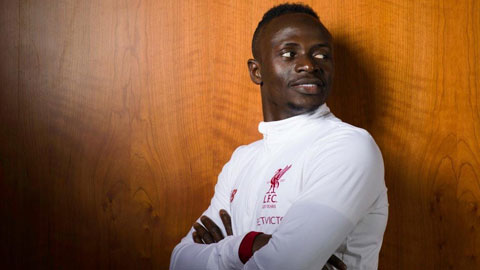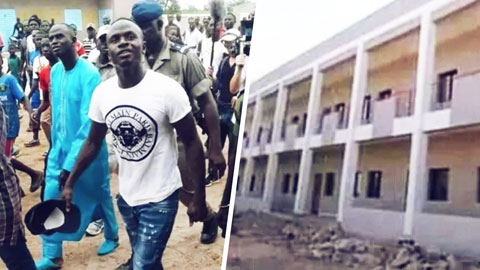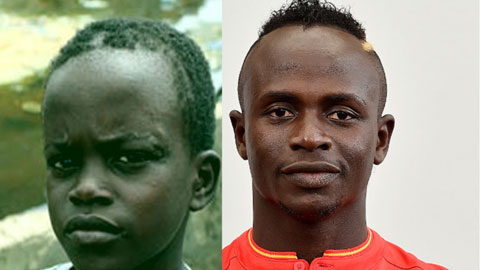Homeland and family are always in my heart
Now Mane has almost everything anyone dreams of. He and Liverpool won the Champions League last season and are about to win the Premier League this season. He won the title of African Footballer of the Year in 2019, having won the title of top scorer in the Premier League last season. He is one of the highest paid players in the world. Such a star is often prone to rewarding himself with super cars, expensive mansions and lavish vacations. But Mane is different. He spends money, fame and time to take care of his homeland.

The striker, born in the poor village of Bambali in the Sedhiou region of Senegal, has over the years built a school, hospital and church for his hometown of Bambali. Mane did those gestures not to show off, not to polish his name. He did it with all his love for his homeland, like a countryman who never forgets the culture and beliefs of his homeland.
Coach who coached Mane at Metz before, Olivier Perrin said: “For Senegalese people like Mane, the roots of success are closely related to family. Family factors are always especially important to them. They are determined to succeed at all costs so that their family can change their lives. I have to objectively compare that that special motivation to strive is something that many people in Europe do not have.”

Mane himself confided: “From a young age I was taught that I could say “I don’t know where I’m going” but not “I don’t know where I came from”. We always have to look back to our starting point, always remember those who raised us and those who helped us grow up.”
Mane’s former teammate at Metz, Pierre Bouby commented: “I don’t need to say how talented Mane is, how difficult Mane’s starting point is, many people probably already know. I can only confirm that Mane is a person who has been raised well to be a kind person.”
Mane’s message
Mane was born in Bambali on April 10, 1992. He grew up amid poverty. His family as well as his relatives’ families all have many children and little money.
Even though they were poor, Mane’s parents still tried to find a way to make ends meet because of their dream of giving Mane a good education. Mane’s aunts and uncles advised him that if Mane’s family could afford to send Mane to school, it would be good, otherwise Mane should follow them to work in the fields. Mane’s relatives all objected to Mane pursuing his dream of becoming a football player.
Mane’s uncle Ibrahim Toure recounted: “I remember at that time I used to complain about Mane not going to the fields but always playing football. Mane assured me: “Uncle, I will become a national player. I will become a famous player so that you and everyone else don’t have to work hard in the fields anymore.” I just smirked: “Stop dreaming, my nephew! Everyone in our family is poor. How can I have money to send my children to soccer practice? Get rid of that unrealistic dream!”.

Despite everyone in his family and relatives’ objections, Mane still decided to pursue his dream of playing professional football to the end. At the age of 16, Mane borrowed some money from friends and neighbors and went to Dakar to find an opportunity to assert himself with torn shoes and shorts that were not soccer pants. With talent and will, Mane gradually succeeded from there.
Now that he has become a talent, Mane wants to remind his young fans back home that it would be a mistake if they continued to follow the path he took. Mane wants to remind that dropping out of school to play football is not a smart solution to change your life. Out of hundreds of thousands of people, there are only a few people like Mane. In addition to talent and extraordinary will, there is also luck. Ideally, they need to equip themselves with knowledge and health – things Mane has prepared by building schools and hospitals in his hometown.